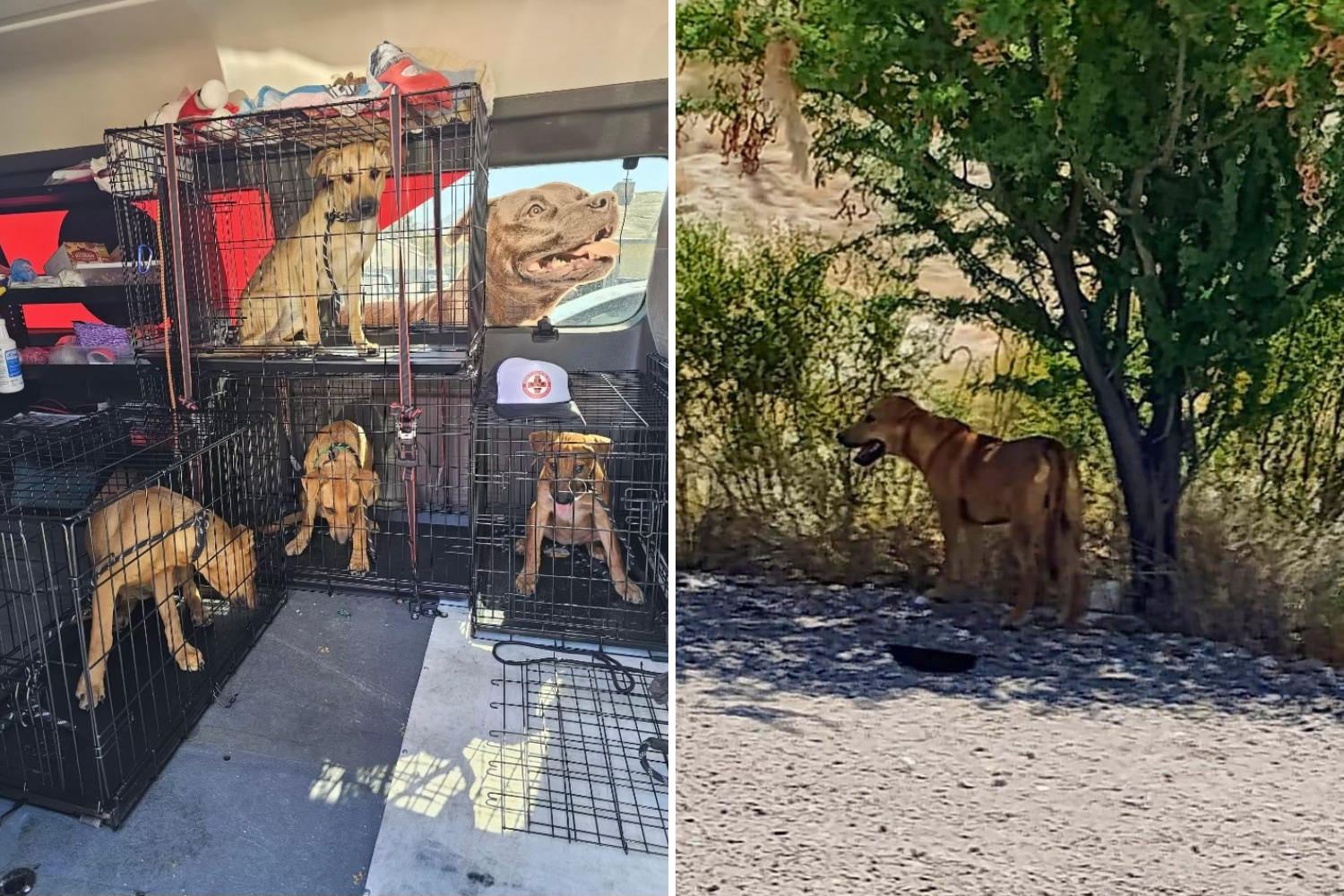Four puppies have been rescued after surviving weeks under the scorching sun of the Mojave Desert, where their desperate struggle for food led them to eat rocks.
Paws Patrol LV, a rescue group based in Las Vegas, was alerted on August 2 by a concerned traveler who spotted the pups near a gas station close to Baker, California. Employees at the station mentioned that they had been observing the four puppies for nearly a month.
Determined to save them, the volunteers launched an intense five-day search through harsh desert conditions.

When found, the puppies were in extremely poor condition, having relied on rocks to stay alive in the sweltering heat. During that month, temperatures in the desert soared to an average of 90°F during the day and dipped to about 64°F at night, with July being notoriously hot in the area.
Dogs are particularly vulnerable to heat. Their ability to cope with high temperatures varies based on breed, age, size, and health status. Generally, dogs can start to suffer from heat stress when temperatures reach 80-85°F, making it crucial for them to have access to shade, water, and a cool place to rest.
Upon rescue, the puppies were taken to the Nevada SPCA where they are now receiving the care they desperately need.
Joyce Foreman from Paws Patrol expressed relief over the rescue, stating, “It’s such a relief after spending so many sleepless nights worrying about their safety amidst dangers like coyotes.”

With the puppies now safe and receiving excellent medical attention, the Nevada SPCA is extremely thankful for Paws Patrol’s dedicated efforts. Lee from the SPCA shared, “The puppies are doing well and are in our shelter’s care. Once they’re medically cleared and spayed or neutered, they will be ready for adoption.”
According to Shelter Animals Count, in 2023, approximately 6.5 million animals entered U.S. shelters, marking a 4 percent increase from 2022. By the end of 2023, there were 117,000 more dogs and cats in the animal sheltering system compared to the prior year.
Of the shelter intakes in 2023, 48 percent were stray animals, 18 percent were transferred from other facilities, 25 percent were relinquished by their owners, and 9 percent fell into other categories.
